Description
BUY BOER GOATS FOR SALE
If you’re searching for top-quality livestock, our Boers for sale are an excellent choice. Our Fullblood and Purebred Traditional and Red Boer Goats are bred for exceptional health, robust growth, and superior genetics. Known for their hardiness and adaptability, these goats excel in breeding, meat production, and show purposes. Their gentle temperament makes them suitable for various environments and conditions, ensuring they thrive under expert care.
At Alpha Agventure Farms, we maintain high standards through our comprehensive programs. Our Goat Housing Program provides a comfortable living environment, while our Goat Production Management focuses on optimizing their growth and health. Our Goat Breeding Program, Breeder Selection Program, and Feeding Program work together to produce goats with superior genetics and performance. Additionally, our Health Management, Biosecurity, and Disease Management Programs address any health concerns, maintaining their well-being.
Our Fullblood and Purebred Boer Goats are dewormed as needed and receive monthly supplements of Vitamin B-Complex, Iron, Vitamins A, D, E, and DCM (Dextrose, Calcium, and Magnesium). They are also deloused quarterly.
Choosing our Boers means investing in sustainable farming practices and securing a valuable addition to your herd. The price of purebred Boer goats reflects their quality and the care they receive. For those looking to invest wisely, consider buying fullblood Boer goats from us for impressive returns and lasting benefits.
WHY BUY BOER GOATS FROM US?
1. We delouse our Boer goats monthly once they turn 4-month-old.
At Alpha Agventure Farms, we ensure our goats are free from parasites by delousing them starting from 4 months old. This proactive measure helps to maintain their health and comfort, preventing irritation and disease caused by lice. Our commitment to regular delousing means you receive goats that are not only healthier but also more content, which supports better growth and productivity. You can be confident that our meticulous delousing process distinguishes us from others, ensuring you receive the highest quality animals.
2. We deworm our Boer goats every three months.
To ensure the optimal health of our Boer goats, we deworm them every three months. This regular schedule effectively targets and eliminates internal parasites, addressing issues before they become significant health concerns. By interrupting the life cycle of parasites and preventing their buildup, our three-month deworming program ensures that both adult parasites and their offspring are controlled. This proactive approach supports the overall health and growth of our goats, maintaining high standards of well-being and performance.
3. We inject Vitamin B-Complex, Iron, ADE, and DCM into our Boer goats every month, with an additional dose three days before delivery or pickup.
At Alpha Agventure Farms, we go the extra mile by providing essential vitamin and mineral injections to our goats monthly and three days before delivery or pickup. This ensures that your goats have optimal health and vitality, making them more resilient against diseases. By choosing our goats, you benefit from enhanced health and robustness, knowing that our comprehensive care protocol is unique and unparalleled. This extra care ensures you receive goats that are not only robust but also primed for peak performance.
4. We have an online Goat Farming Seminar.
You can learn from our cultural management practices in raising goats and our marketing strategies for selling them by subscribing to our online Goat Farming Seminar. The seminar is divided into two modules: Module 1 (Cultural Management) and Module 2 (Agri-Marketing). In Module 1, you will gain valuable insights into effective goat housing design, production management at various scales, and breeder selection. We cover essential topics such as breeding programs, congenital defect prevention, and optimizing feed through an understanding of the goat’s digestive system. Additional training includes silage-making and disease management techniques.
Module 2 focuses on Agri-Marketing, providing strategies to boost your farm’s visibility and marketing effectiveness. Learn about search engine marketing, video marketing, and social media tactics to effectively promote your goat products. By the end of the seminar, you’ll be equipped with the knowledge and tools needed to manage your goat farm efficiently and market your products successfully.
HISTORY OF BOER GOATS
Origins of the Boer Goat
The Boer goat originated in South Africa, where Dutch settlers first began developing the breed in the late 17th century. These early pioneers, primarily farmers, sought to create a goat breed that would thrive in the local environment and provide high-quality meat. By selectively breeding indigenous goats with imported breeds, they developed the Boer goat into a robust and hardy animal suited for meat production.
The name “Boer” comes from the Dutch word for “farmer,” reflecting the breed’s deep-rooted connection to agricultural life. The Boer goat’s development was driven by the need for a reliable and productive livestock breed capable of withstanding South Africa’s diverse and often harsh climates. Over time, the Boer goat became a vital component of South African farming and a symbol of successful agricultural innovation.
Development and Characteristics
During the early 20th century, Boer goats were selectively bred to enhance their meat-producing qualities and overall hardiness. Breeders focused on traits such as muscular build, rapid growth rates, and resistance to disease. The breed’s ability to adapt to various environmental conditions, from arid deserts to humid regions, further solidified its reputation as a premier meat goat.
Boer goats are easily recognizable due to their distinct appearance: a white body with a brown head and large, pendulous ears. These characteristics, combined with their superior growth rate and meat quality, have made them a favorite among farmers worldwide. Their physical traits not only contribute to their aesthetic appeal but also to their practicality in meat production.
Boer Goats in the Modern Era
The Boer goat gained international recognition in the latter half of the 20th century, as breeders in countries outside South Africa began to appreciate their exceptional qualities. The breed was introduced to regions such as Australia, the United States, and New Zealand, where it adapted well to new farming systems and environments. This global expansion significantly increased the Boer goat’s influence and popularity.
Today, Boer goats are raised across various countries, and their meat is highly prized for its quality. The breed’s ability to thrive in different climates and farming practices has cemented its status as a leading meat goat worldwide. The continued interest in Boer goats reflects their success and the ongoing demand for high-quality meat products.
Impact on Goat Farming
The introduction of Boer goats has had a profound impact on the goat farming industry. Their superior meat quality, combined with their adaptability, has set new standards for meat goat breeds and improved overall production efficiency. Farmers around the world have adopted Boer goats to enhance their meat production capabilities and meet market demands.
Additionally, the Boer goat’s resilience and ability to thrive in various climates have made it a valuable asset in regions with challenging environmental conditions. This adaptability has allowed farmers to maintain high production levels even in less favorable climates, further contributing to the breed’s widespread success and adoption.
Global Spread and Breeding Programs
The Boer goat’s global spread has been accompanied by advanced breeding programs aimed at optimizing its genetic traits. These programs focus on improving growth rates, meat quality, and overall performance, ensuring that Boer goats continue to meet the evolving needs of the livestock industry. Such efforts have been instrumental in maintaining the breed’s high standards and enhancing its appeal to farmers worldwide.
Breeding programs have also contributed to the Boer goat’s adaptation to various farming systems and climates. By selectively breeding animals that excel in specific environments, these programs help maintain the breed’s versatility and resilience. The ongoing development of Boer goats highlights the breed’s importance in modern agriculture and its potential for future growth and success.
Future Prospects
Looking ahead, the Boer goat is expected to remain a prominent breed in the meat goat industry. Continued research and breeding efforts aim to further enhance the breed’s traits, ensuring that it meets the increasing demand for high-quality meat. As global food production needs continue to rise, Boer goats will likely play a significant role in contributing to food security and agricultural sustainability.
The future of Boer goat farming also includes exploring new markets and improving farming practices. Innovations in breeding and management techniques will help optimize production and maintain the breed’s high standards. With ongoing advancements and a strong global presence, Boer goats are poised to remain a key player in the livestock industry for years to come.
FREQUENTLY ASKED QUESTIONS
Can I use your fullblood and purebred traditional and red Boer goats as breeders?
Yes, you can use our fullblood and purebred traditional and red Boer Goats as breeders. They have been carefully selected to meet our strict breeder selection criteria, ensuring their superior genetics and desirable traits. Whether you’re looking for Boer goats for sale to enhance your breeding program or improve your herd’s quality, our Boer goats are an excellent choice. Their exceptional growth rates, hardiness, and meat production qualities make them highly valuable breeding stock for any farm.
Where is your pickup site?
Our pick-up site is located at Block 7, Barangay San Manuel, Tarlac City. You can easily find us by searching for “Alpha Agventure Farms” on Google Maps or Waze for precise directions. Please note that this location serves as a designated pick-up zone. Visits are by appointment only, so be sure to schedule a pick-up in advance. We do not accommodate walk-ins to ensure the smooth handling and preparation of orders for our valued customers.
Do you deliver Boers anywhere in the Philippines?
Our Boers are available for pick-up only at our designated location in Block 7, Barangay San Manuel, Tarlac City. If you are unable to pick up your goats personally, consider hiring an animal transporter to facilitate delivery. We can assist in finding a reliable transporter if needed. Provide your address and order details for a delivery quote and schedule. Once with the transporter, the Boer goats are no longer our responsibility. If you want to buy Boer goats, we can guide you through the process.
Can I pick up my Boer goats if I pay today?
Even if you pay today, picking up your Fullblood and Purebred Traditional and Red Boer Goats tomorrow is highly unlikely. All our clients pay for their Boer goats months in advance, typically four to nine months before the target availability date. We operate on a “first come, first served” basis, ensuring fairness and transparency in our transactions. This policy allows us to maintain high-quality standards and manage our inventory efficiently to meet customer demands and expectations.
Will you teach me how to raise Boer goats if I buy from you?
Yes, of course! While waiting for the availability of your Boer goats, you can register to our prerecorded Goat Farming Seminar. This seminar covers our entire farm practices and provides valuable insights into raising Fullblood and Purebred Traditional and Red Boer Goats. Investing in this knowledge will empower you with the skills and information needed to succeed in goat farming, enhancing your experience and productivity.
What is a fullblood Boer goat?
A Fullblood Boer goat is a goat with 100% pure genetics from the original Boer goats. These goats can trace their lineage directly back to the breed’s origins in South Africa. Known for their exceptional meat quality, rapid growth rates, and strong, muscular build, Fullblood Boer goats are highly sought after for breeding and meat production. Their robust genetics and superior traits make them an ideal choice for farmers looking to enhance their herds with high-quality livestock.
What is a purebred Boer goat?
A Purebred Boer goat possesses at least 93.75% Boer genetics, closely resembling Fullbloods in appearance and qualities. While they may have slight genetic contributions from other breeds, Purebred Boer goats maintain the desirable characteristics associated with the breed, such as exceptional meat quality and strong, muscular build. They are prized for their rapid growth rates and adaptability to various environments. If you are searching for a Boer for sale, consider adding Purebred Boer goats to your herd for their excellent traits and performance.
What are the main differences between traditional and red Boer goats?
Traditional Boer goats typically have a white body with a red or brown head and neck, whereas Red Boer goats are solid red in color. While both types of Boer goats share similar qualities, such as high meat production and hardiness, the main difference lies in their coloration. This distinction in appearance can be a preference for breeders or farmers looking to diversify their herds. Both Traditional and Red Boer goats are known for their excellent meat quality and adaptability to various farming conditions.
How do I identify a high-quality fullblood Boer goat?
To identify a high-quality Fullblood Boer goat, look for specific physical traits such as a strong, muscular build, a distinctive Roman nose, and pendulous ears. Additionally, ensure the goat has documentation proving its pedigree and genetic purity. Quality breeders will provide health records and performance data, allowing you to assess the goat’s potential for breeding or meat production. Finding Boers near you with these characteristics will enhance your herd’s genetic quality and performance.
What are the benefits of raising Boer goats?
Boer goats offer numerous benefits for farmers, primarily due to their exceptional meat production capabilities. They are renowned for their fast growth rates, high fertility, and efficient feed conversion ratios, making them an economically viable choice for meat production. Boer goats are also hardy and adaptable, thriving in various environments and weather conditions. Their robust health and easy management make them an ideal choice for farmers seeking reliable livestock that provides excellent returns on investment.
How should I care for Boer goat kids?
Caring for Boer goat kids requires attentive management, particularly during the early stages of their development. Ensure they receive colostrum within the first few hours after birth to boost their immune system. Provide a clean, dry environment to prevent health issues, and start them on a diet of milk or milk replacer. Gradually introduce solid food as they grow, ensuring access to clean water at all times. Our Online Goat Farming Seminar will equip you with comprehensive knowledge on raising healthy and thriving Boer goat kids.
What kind of diet do Boer goats require?
Boer goats thrive on a well-balanced diet that includes high-quality forage, such as pasture grasses, corn silage, and Napier silage. Supplement their diet with grains, minerals, and vitamins to ensure they receive the necessary nutrients, particularly during breeding and lactation periods. Adequate nutrition is vital for maintaining their health, growth, and reproductive performance. By investing in a proper diet, you enhance the overall productivity of your herd and ensure the well-being of your Boer goats. You can buy Boer goats and purchase all of these must-haves from us too.
How often should I deworm my Boer goats?
The frequency of deworming Boer goats depends on local parasite loads and management practices. Generally, deworming every 3-4 months is recommended to control parasites and maintain optimal health. Regular fecal tests help determine the specific needs of your herd and guide your deworming schedule. Ensuring a strategic approach to parasite management will prevent health issues and improve your Boer goats’ overall productivity and well-being.
What are common health issues in Boer goats?
Boer goats can experience health issues such as parasites, respiratory infections, foot rot, and nutritional deficiencies. Implementing good management practices, providing a balanced diet, and scheduling regular veterinary check-ups can help prevent these problems. By being proactive in monitoring and addressing potential health concerns, you safeguard your herd’s well-being and enhance their productivity. Our Pre-recorded Goat Farming Seminar will further prepare you to manage the health and welfare of your Boer goats effectively.
How can I tell if my Boer goat is sick?
Identifying a sick Boer goat involves observing signs such as lethargy, loss of appetite, diarrhea, coughing, and unusual discharge from the eyes or nose. Promptly consult a veterinarian, or avail of our farm consultancy service, if you notice these symptoms to ensure timely diagnosis and treatment. Regular health monitoring and early intervention are crucial in maintaining your herd’s health and preventing the spread of illness. Educating yourself on common health issues and their signs will empower you to care for your Boer goats effectively.
What is the breeding season for Boer goats?
Boer goats have the advantage of being able to breed year-round. However, it is advisable to follow a structured breeding program to optimize their reproductive success. In the Philippines, scheduling births during the less rainy months ensures more favorable conditions for the growth and health of goat kids. Proper planning and timing of breeding cycles will contribute to the overall productivity and efficiency of your Boer goat herd.
How long is the gestation period for Boer goats?
The gestation period for Boer goats typically lasts approximately 145 to 155 days. During this time, it is essential to provide pregnant does with extra nutrition and monitor them closely for signs of labor as the due date approaches. Ensuring proper care and support during gestation will promote healthy pregnancies and successful births, contributing to the overall productivity and growth of your Boer goat herd.
What are the characteristics of a good Boer goat buck?
A good Boer buck should exhibit a strong, muscular build, excellent conformation, and a calm temperament. Look for bucks with a proven breeding record and superior genetics to improve your herd’s quality. Selecting high-quality bucks with desirable traits will enhance your breeding program and contribute to the overall success of your Boer goat operation. Investing in quality bucks ensures the continued improvement and productivity of your herd.
What is the difference between commercial and show-quality Boer goats?
Commercial Boer goats are bred primarily for meat production, focusing on traits like growth rate and feed efficiency. They are valued for their productivity and economic viability in livestock farming. Show-quality Boer goats, on the other hand, are bred for specific physical traits and conformation to breed standards. These goats often participate in livestock shows, showcasing their exceptional qualities and genetics. Understanding the distinctions between these categories allows you to choose goats that align with your specific farming goals and objectives.
How can I improve the genetics of my Boer goat herd?
Improving your Boer goat herd’s genetics requires a strategic approach to breeding. Select high-quality bucks and does with desirable traits to create superior offspring. Incorporate new genetics by purchasing Fullblood or Purebred goats, which can enhance your herd’s overall performance. Regularly evaluate your herd’s performance and make informed breeding decisions to achieve continuous improvement. By focusing on genetic advancements, you ensure the long-term success and productivity of your Boer goat operation.
What are some common uses for Boer goats besides meat production?
Besides their primary role in meat production, Boer goats serve various purposes. They are utilized for land management, effectively clearing brush and overgrown vegetation. Boer goats also participate in livestock shows, showcasing their exceptional traits and genetics. Additionally, they are used in crossbreeding programs to improve meat quality and growth rates in other goat breeds. Understanding the versatility of Boer goats allows you to explore additional opportunities and maximize their potential on your farm.
How do I handle and restrain Boer goats safely?
When handling Boer goats, it is crucial to approach them calmly and gently to minimize stress. Use proper restraint techniques, such as holding the goat by the horns or using a halter, to ensure both your safety and the goat’s well-being. Avoid rough handling to prevent injuries. Handling practices that prioritize the goats’ comfort and security contribute to their overall health and ensure a positive experience for both the handler and the goats. Our farm staff will train you if you are interested.
What kind of housing do Boer goats need?
Boer goats require housing that protects them from extreme weather conditions and predators while providing a clean, dry resting area. The shelter should be well-ventilated and spacious enough to accommodate the herd comfortably. Adequate housing ensures the goats’ health and safety, contributing to their overall productivity. Providing suitable living conditions fosters a positive environment for your Boer goats, promoting their well-being and supporting their growth and development.
Can Boer goats be kept with other livestock?
Boer goats can be kept with other livestock, such as sheep and cattle, provided their specific needs and behaviors are accommodated. Ensure all animals have adequate space and nutrition to prevent conflicts and competition for resources. Proper management practices will allow for harmonious coexistence among different species, maximizing the productivity and efficiency of your farm. When looking for Boers near you, consider their compatibility with other livestock to create a diverse and successful farming operation.


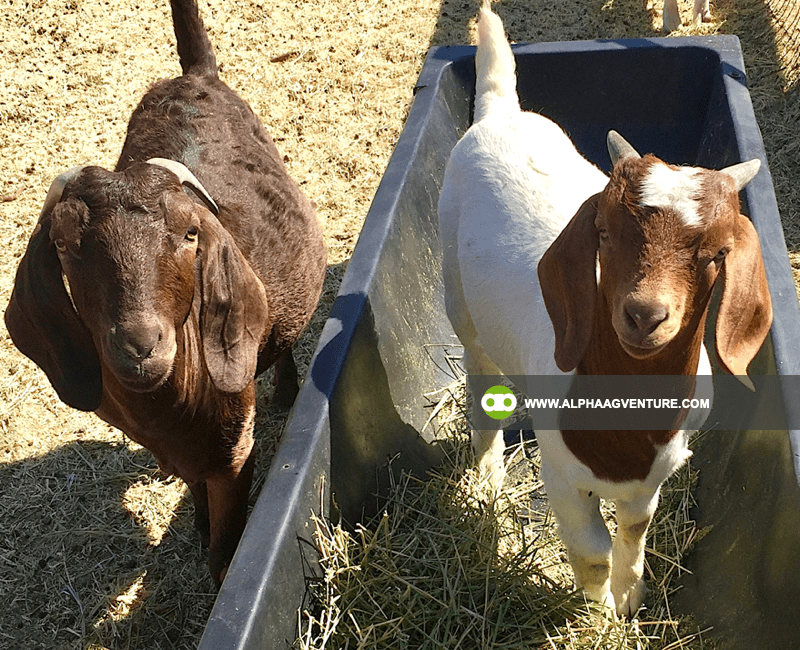
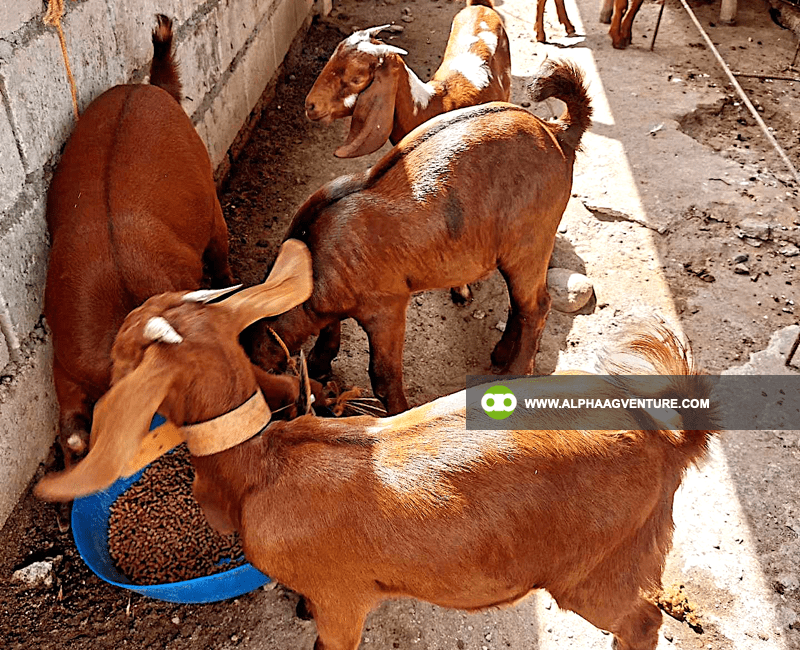
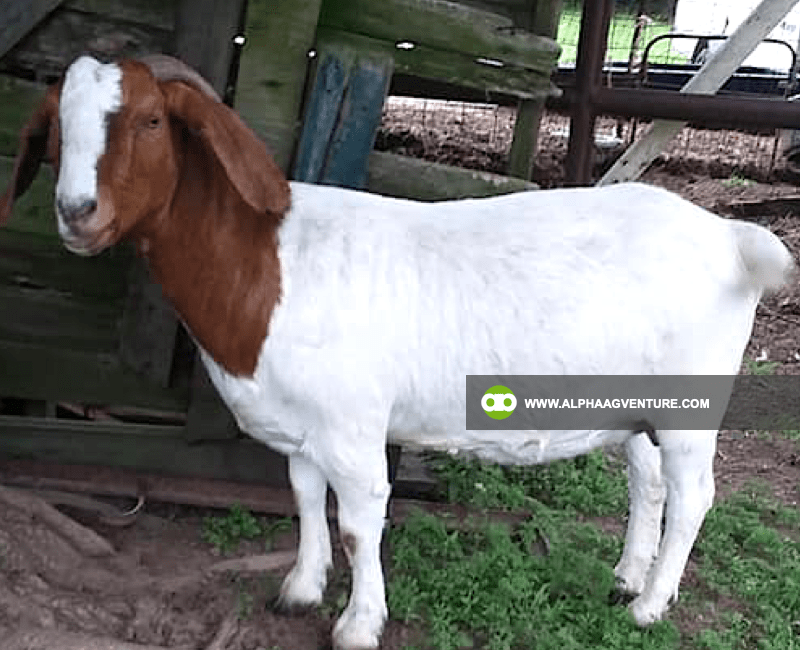
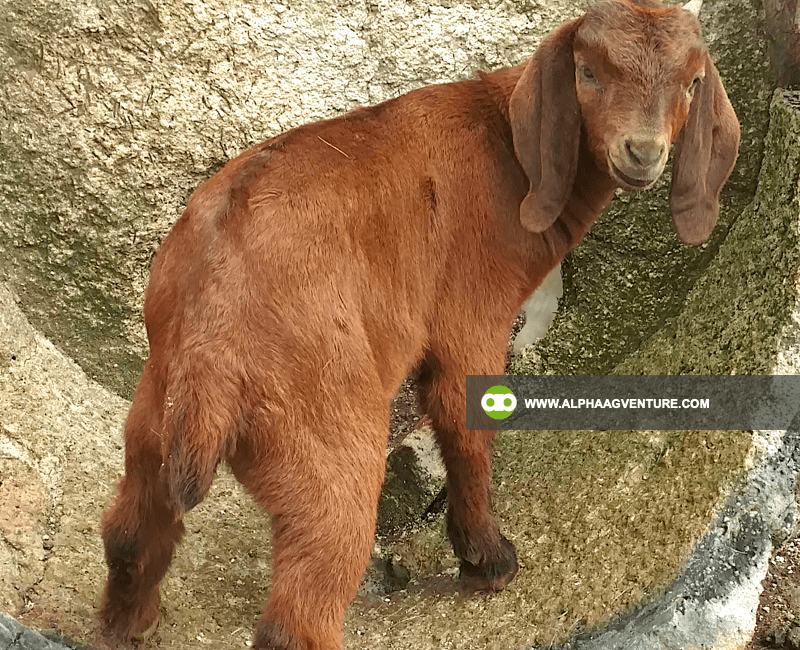
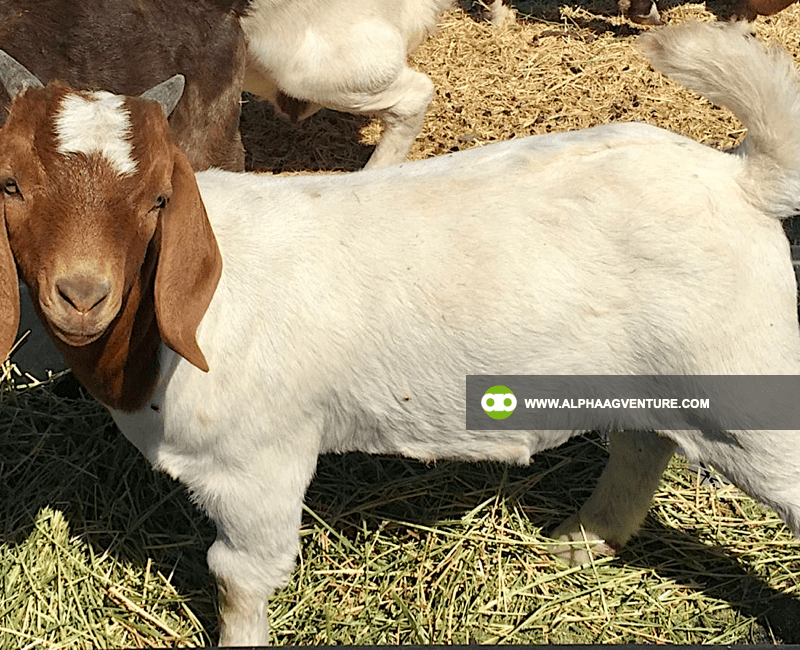
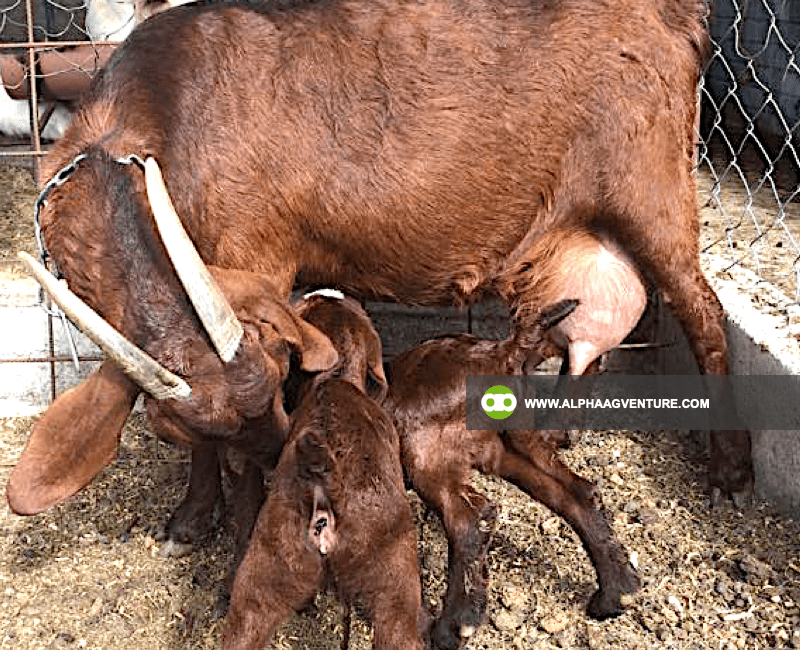
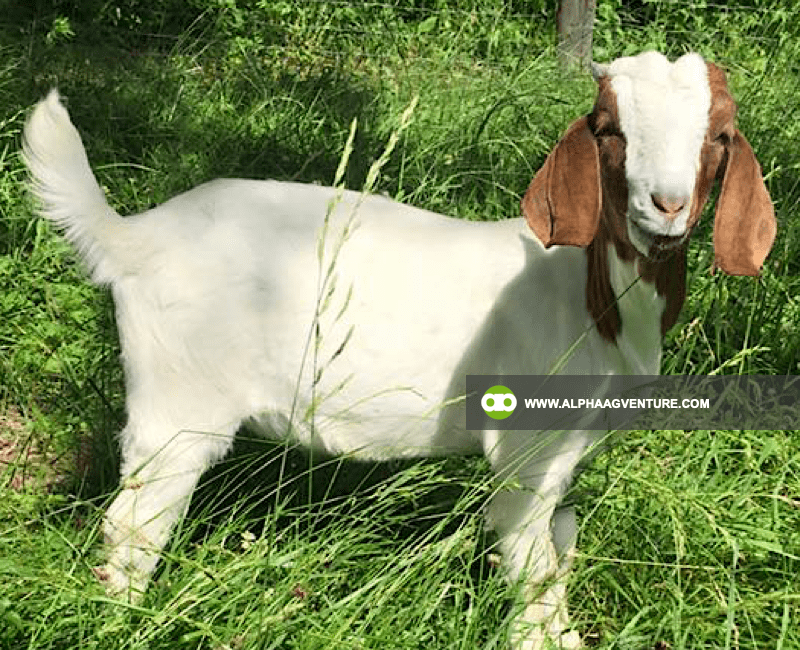
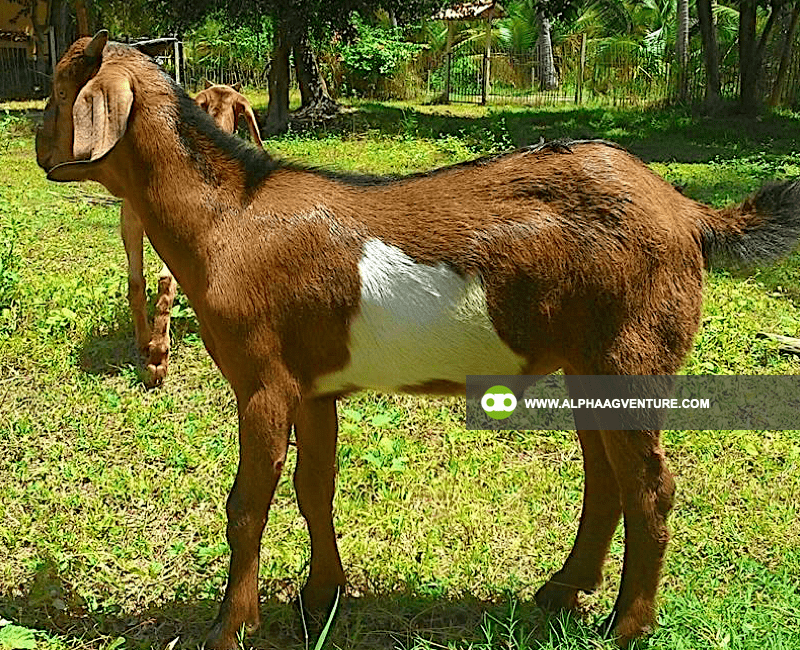
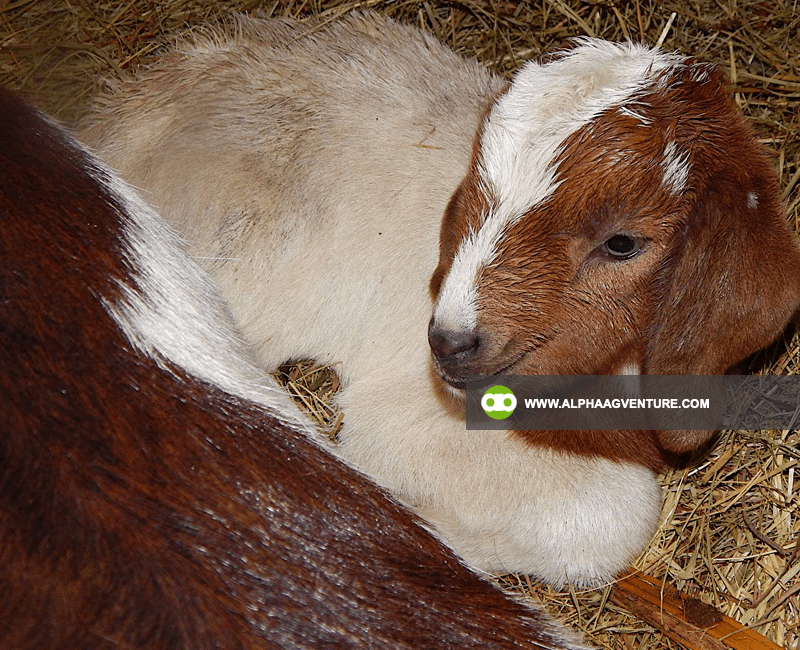
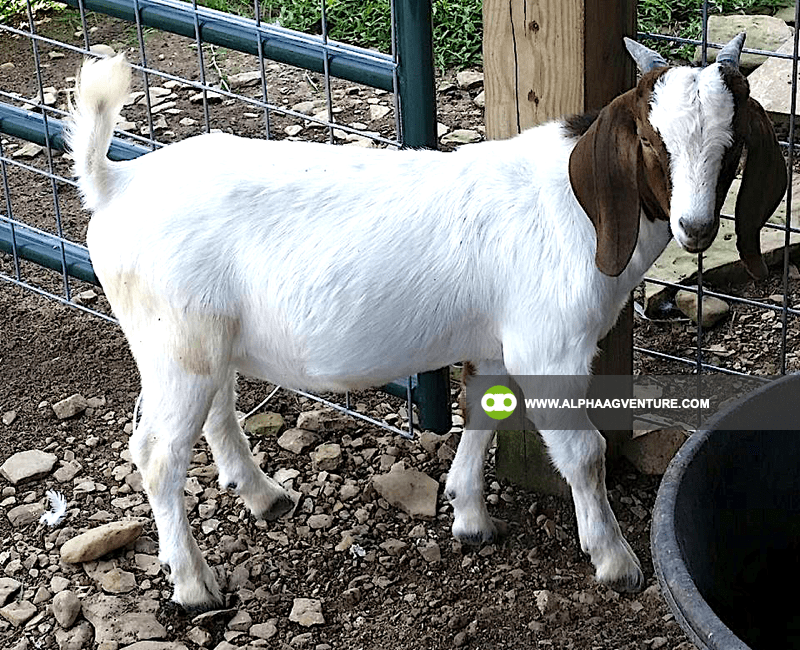
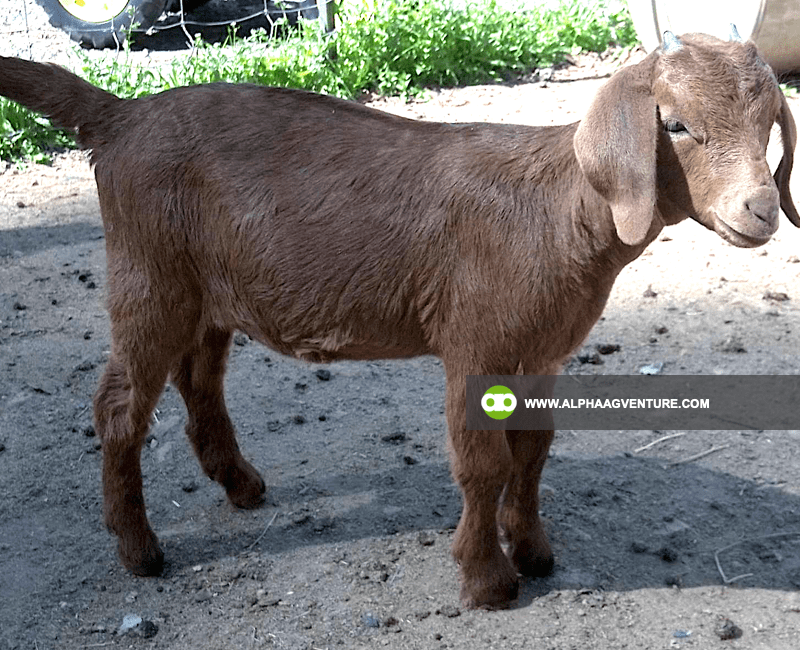

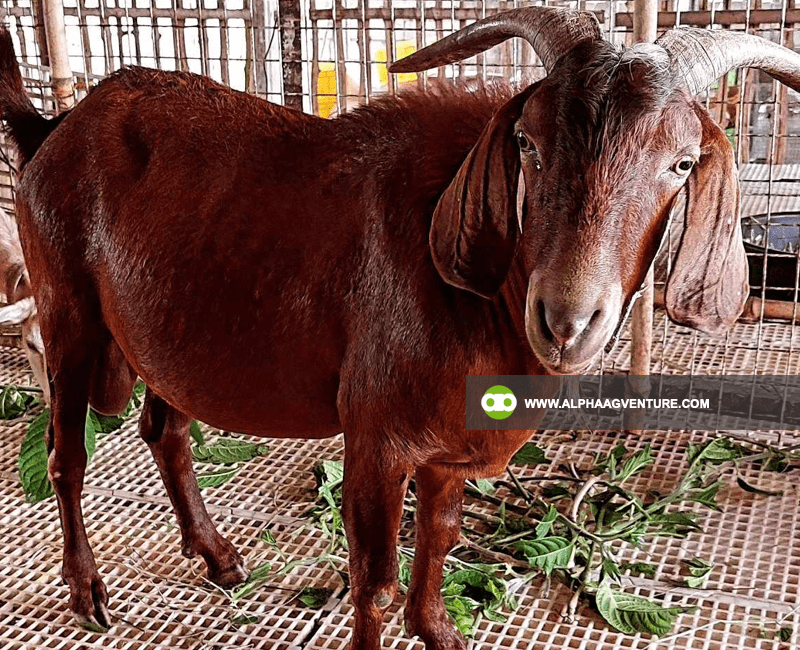
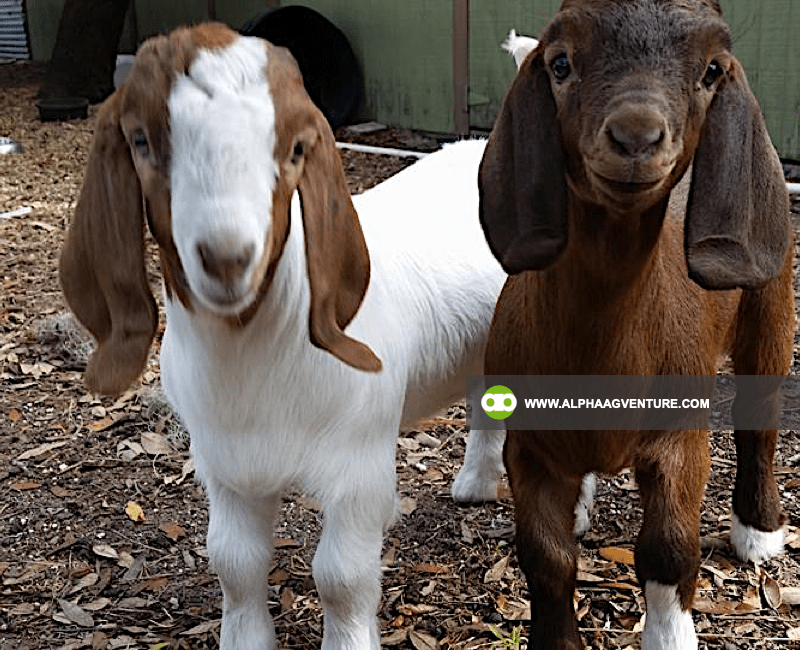
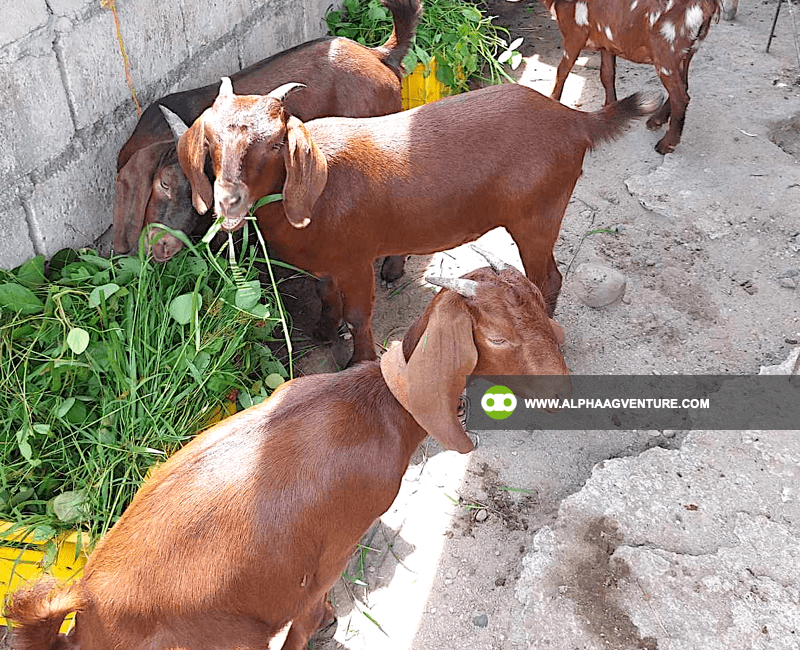
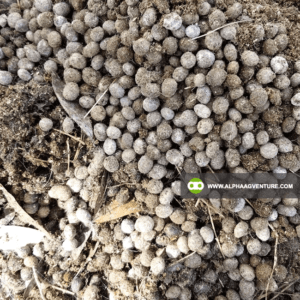
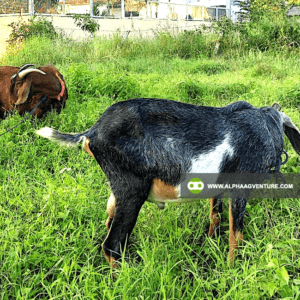
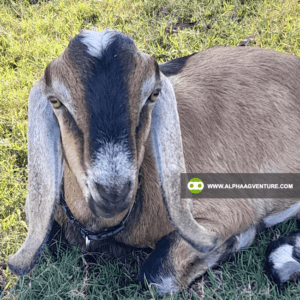
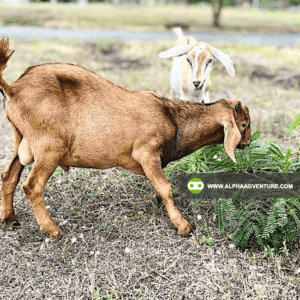
Reviews
There are no reviews yet.